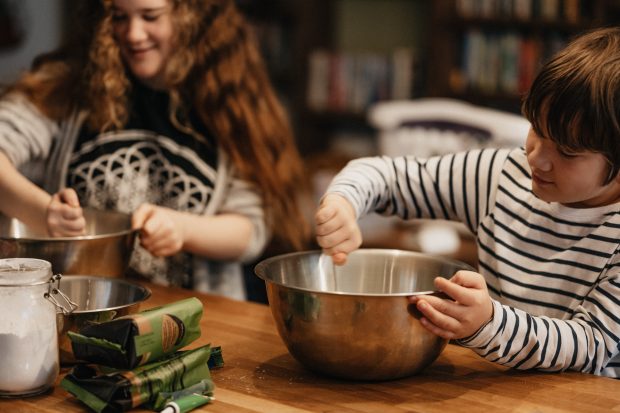8 Life Hacks To Teach Your Kids While They’re Young

8 Life Hacks To Teach Your Kids While They’re Young
Your youngster is capable of performing a large number of duties on their own. When children are given the skills to carve out some secure freedom, they thrive. These life hacks will assist your children in self-care and the development of new talents. Let’s have a look at them.
- Using Kitchen Utilities
Food preparation is a crucial life skill that your children will carry with them for the rest of their lives. As soon as two or three years old, toddlers can begin to prepare their personal snacks. How to wield a knife properly is one of the most crucial culinary skills to master. For little hands, a small, flat spreader with no sharp edges is the ideal first knife. Allow your children to try cutting soft cheeses and fruit, as well as spreading peanut butter or jam. They’ll like creating their own snacks, and you’ll feel comfortable allowing them to do so.
Furthermore, it would be ideal to provide them with some little scales so they can know how much they need while creating some light meals they may have as a snack. To that end, scales for weighing very small items, such as herbs, sugar, spices, or other small substances, may be great for your children to use. Knowing how to use these scales is crucial and something that everyone should be able to accomplish, so starting with this small choice is a perfect place to start for your children.

- Using Hangers for Storing Accessories
Use any extra hangers to hang up both your children’s and your personal accessories to get the most out of them. Bracelets, necklaces, sunglasses, and even electrical devices such as earbuds may be hung on them for better access and less bother. Put an extra carabiner in there as well so your kids may hook up smaller items like hair bands and earrings.
- Choosing Their Own Lunch
This trick may be ideal for your family if you suffer from half-eaten meals and discarded food. Assist your children in picking the ideal lunch while also providing them more choice and control. Sort items into baskets or bins by type if they are pre-portioned or individually packaged. Tell your youngster how many fruits, snacks, or other foods he or she can have. Giving them the ability to choose from the alternatives you present gives them a sense of control. The kids will be more enthusiastic about eating their lunch, and you will have less time to prepare before school.
- Doing the Laundry
Allowing your child to grow up without knowing how to wash their own clothes is not a good idea. Teaching your children how to do the laundry can begin as early as the age of five or six years old. Keep a step stool handy if you have an upper washer. Make the process interesting for them by showing them how to weigh and add the detergent, select the settings, and start the machine.
- Teach Them Heimlich Maneuver
To teach your children the Heimlich maneuver, have them ask the person who seems to be choking, “Are you choking?” If the person replies yes and no adult is present, they should do the following steps:
Put your arms over the choking person and stand behind them.
Make a closed fist and position the thumb side just over their belly button but still below their rib cage. With your other hand, grasp your fist and shove it quickly inward and upward into their stomach.

- Wrapping a Gift
Your child already enjoys giving gifts, and wrapping them adds to the enjoyment. Preschoolers may assist with cutting the paper and applying the tape, while kindergarteners can assist with extra procedures such as removing the price tag, selecting the appropriate box size, and wrapping the present all the way around to ensure it fits before cutting it.
- Cleaning
You may suggest that your room must be spotless every day before supper. This way, they’ll get into the habit of cleaning up before supper, allowing you to spend quality time with your family or have plenty of time to get ready for bed. Make sure that everything has a place in your home and that your children are aware of it. Cleanliness will be encouraged by maintaining this uniformity.
Allow them 5 minutes to clean before moving on to the next activity. Alternatively, start with one half of the playroom and come back to finish the other half later. Sending your children into a chaotic playroom with no time restriction is a certain way to get them sidetracked.
- Getting Dressed
Very young toddlers frequently begin to notice clothes by removing easy-to-remove items such as socks, shoes, or hats. They attempt to put them on again every now and again. You may help your kid develop this early knowledge by labeling the clothing he or she has removed and the body components to which they are attached.
Giving your older infant or toddler a limited choice of clothes and labeling them as you put them on is a good way to start including them in getting dressed. It might help to have some simple clothing available when you feel it’s time for your youngster to truly start mastering this skill.
These life hacks will not only make things easier around the house, but they will also assist your children in becoming more flexible and efficient. Children do learn from their elders. Share these pointers with them and you’ll be the coolest parent on the block.
Author: Allen Brown.




